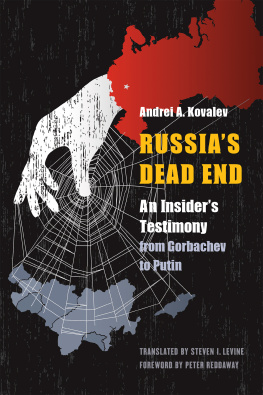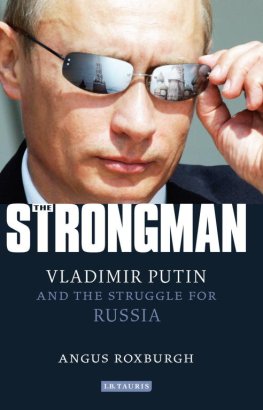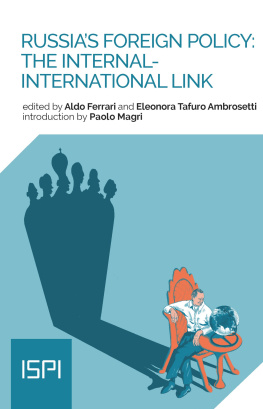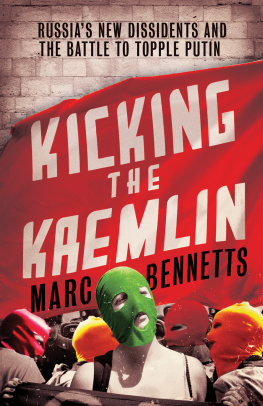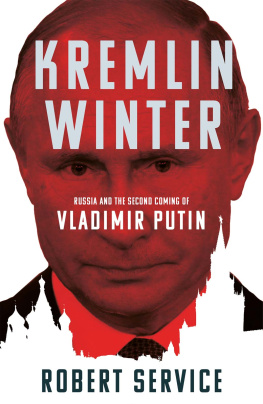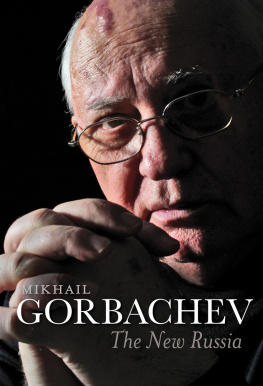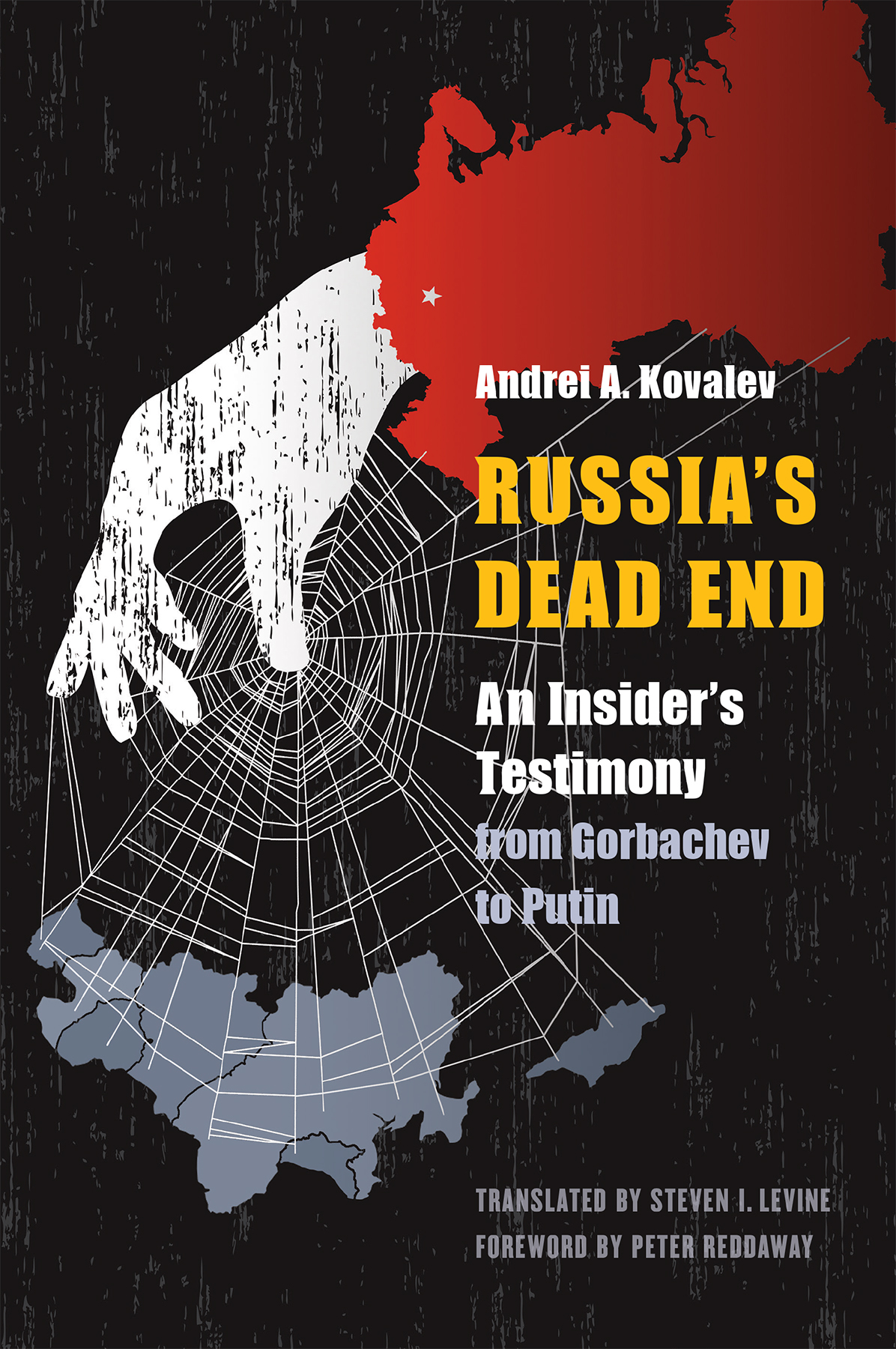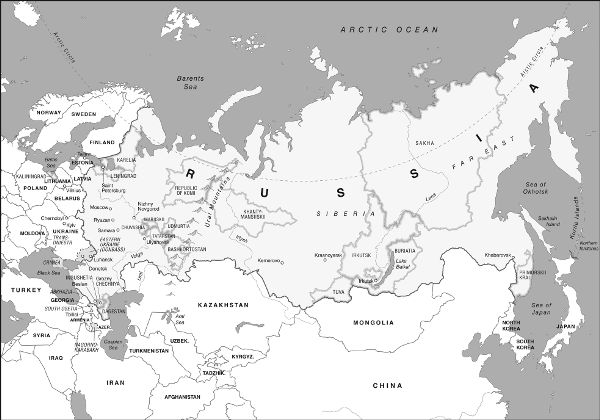Andrei Kovalev has drawn on his remarkable career at the highest level of Russian politics from Gorbachev to Putin to give a picture of both successes and disappointments. This is a book written from the heart by a diplomat of acute intelligence. Kovalev rode the steed of Russian public affairs till his conscience told him to dismount, and this exceptional book explains his reasons.
Robert Service, emeritus professor of Russian history at St. Antonys College, Oxford University, and senior fellow of the Hoover Institution at Stanford University
Andrei Kovalev loves Russia, a different Russia, an open and democratic one, where human rights are respected. His book is a must-read for those who want to understand the most recent history of Russia and who share his love and indignation over how the efforts to democratize his country were ruined by a small yet powerful corrupt clique.
Robert van Voren, professor of Soviet and post-Soviet studies, Vytautas Magnus University in Kaunas, Lithuania
Russias Dead End
An Insiders Testimony from Gorbachev to Putin
Andrei A. Kovalev
Translated by Steven I. Levine
Foreword by Peter Reddaway
Potomac Books
An imprint of the University of Nebraska Press
English translation 2017 by Andrei A. Kovalev
Foreword 2017 by the Board of Regents of the University of Nebraska
A two-volume Russian-language edition of this book was published under the titles Svidetelstvo iz-za kulis rossiiskoi politiki I: Mozhno li delat dobra iz zla? and Svidetelstvo iz-za kulis rossiiskoi politiki II: Ugroza dlia sebia i okruzhaiushchikh (Stuttgart: Ibidem-Verlag, 2012).
Cover designed by University of Nebraska Press; cover images: hand iStockphoto.com/logan-00; spiderweb iStockphoto.com/-strizh-.
Author photo courtesy of the author.
All rights reserved. Potomac Books is an imprint of the University of Nebraska Press.
Library of Congress Cataloging-in-Publication Data
Names: Kovalev, A. A. (Andre Anatolevich), author.
Title: Russias dead end: an insiders testimony from Gorbachev to Putin / Andrei A. Kovalev; translated by Steven I. Levine; foreword by Peter Reddaway.
Other titles: Svidetelstvo iz-za kulis rossisko politiki. English
Description: Lincoln: Potomac Books, an imprint of the University of Nebraska Press, 2017. | A two-volume Russian-language edition of this book was published under the titles Svidetelstvo iz-za kulis rossiiskoi politiki I: Mozhno li delat dobro iz zla?; and Svidetelstvo iz-za kulis rossiiskoi politiki II: Ugroza dlia sebia i okruzhaiushchikh (Stuttgart: Ibidem-Verlag, 2012)Title page verso. | Includes bibliographical references and index.
Identifiers: LCCN 2016037673
ISBN 9781612348933 (hardback: alkaline paper)
ISBN 9781612349466 (epub)
ISBN 978161234947-3 (mobi)
ISBN 978161234948-0 (pdf)
Subjects: LCSH : Soviet UnionPolitics and government19851991. | Russia (Federation)Politics and government1991 | Glasnost. | Perestroka. | Kovalev, A. A. (Andre Anatolevich) | DiplomatsSoviet UnionBiography. | PresidentsSoviet UnionStaffBiography. | Political cultureSoviet UnionHistory. | Political cultureRussia (Federation)History. | Post-communismRussia (Federation)History. | BISAC : BIOGRAPHY & AUTOBIOGRAPHY / Personal Memoirs. | HISTORY / Europe / Russia & the Former Soviet Union.
Classification: LCC DK 288 . K 6913 2017 | DDC 947dc23
LC record available at https://lccn.loc.gov/2016037673
The publisher does not have any control over and does not assume any responsibility for author or third-party websites or their content.
You might not be a poet
But it ought to give you pause
When you see a strip of light
Squeezing out between closed doors.
Andrei Voznesenskii
Contents
Peter Reddaway
Andrei Kovalevs powerful book argues that Russias trajectory since 1985 has been circular. First, Mikhail Gorbachev and his colleagues carried out an improbable series of revolutionary reforms, taking their country all the wayas baseball fans would sayfrom home plate to first base and on to second. After a revolution did in fact occur and the Soviet Union fell apart, Boris Yeltsin presided over a Russia that stumbled back and forth on its way to third base, where he handed it over to Vladimir Putin. Then Putin quietly flooded the system with his colleagues from the secret police, thus infusing it with a Committee for State Security ( KGB ) mentality. In so doing, he took Russia back to a version of home plate, to a rootless, corrupt, authoritarian, de-ideologized version of the Soviet Union.
Regarding the future, Kovalev sees little likelihood of change in the near term. Domestic policy will continue to become gradually more authoritarian, and foreign policy will feature additional unpredictability and hostility toward the West and its allies. Further ahead, he fears, lie greater dangers, including the possibility of territorial fragmentation. But he hopes that eventually Russia will rebuild itself from the bottom up and join the world community. This monumental task will probably take three generations.
In short, Kovalevs book examines how and why, from 1985 to the present, Russias domestic and foreign policies evolved in the ways they did. Only occasionally does it look at Western policy toward Russia. When it does, the author often chides the West for not evincing enough interest or generosity toward his homeland, or for showing a disturbing navet in appeasing hard-liners in the administrations of Yeltsin and, especially, Putin.
Although the books initial primary audience was educated Russians, Westerners will be perfectly able to understand and benefit from its arguments. Kovalevs lively prose style and the inner freedom of his attractive personality are additional guarantees of this.
The book refers on occasion to the well-known Russian thinker Pyotr Chaadaev, who, starting in 1836, wrote a somewhat similar work, a series of Philosophical Letters. In them he lamented his countrys chronic backwardness and inability to govern itself. He saw its future as lying in an eventual reunion with European civilization. For his pains, Emperor Nicholas I declared him to be insane. However, after some minor official efforts to treat him for his nonexistent condition, Chaadaev continued to be active in Moscows intellectual life. Now, 175 years later, Kovalevs diagnosis of Russias condition evokes Chaadaevs. So does Kovalevs prescription for a cure.
As a former state official of the Union of Soviet Socialist Republics (USSR) and then Russia, Kovalev bases parts of his book on his personal experiences. This applies especially to the years 198691, when he was closely involved in the implementation of high-level foreign policy and then worked briefly for President Gorbachev. He also roots his analysis in his training as a historian with a PhD, in the work of Russias most insightful commentators, and in the experiences of his many friends, including those of his diplomat father, Anatoly Kovalev, who retired as deputy head of the Ministry of Foreign Affairs in 1991.
During his thirty-year career, the author worked for the Institute for U.S. and Canadian Studies and the Diplomatic Academy (197785), the Soviet UNESCO (United Nations Educational, Scientific, and Cultural Organization) commission (198587), the ministrys Directorate for Humanitarian and Cultural Cooperation (198791), the USSR presidents office (1991), the Russian mission to the UN s Geneva offices (199296), the Russian Security Council (19972001), the Russian mission to the European Community in Brussels (20014), and the Russian ombudsman for human rights (20047). Then, finding the Putin administration too politically oppressive, he moved to Belgium and settled in Brussels.

